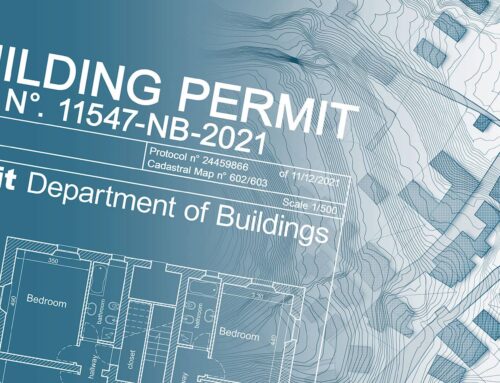What Do Dates and Deadlines in Your Contract Mean?
As each item is referenced in the body of the contract it would be a good idea to have a copy of this page to fill out as you read through the contract. Here is a step by step breakdown of what each date means to you as the seller, why this date might be used in your contract/situation, and most importantly help in keeping track of your dates. Your Realtor should offer this service to you, but being proactive about the sale of your home is something that The Storck Team encourages. Two sets of eyes are better than one!

The Item No. column can be used to refer back to this section.
Example: Regarding Section 3, Item No. 12, the Loan Objection Deadline shall be June 30, 2016.
Do not confuse the Item No. with the Section number, as they often do not align. Be specific.
The Reference column references the corresponding section of the Contract.
Item No. 1 – Alternative Earnest Money Deadline. Use this deadline if you are not (tendering) delivering the earnest money with the offer. Typically this deadline would be just a few days after offer and/or acceptance. When might this be the case?
- Buyer forgot their checkbook
- Buyer needs to transfer money
- You plan to fax, email or otherwise electronically deliver the offer
- There are multiple offers, or the Seller is a bank, and the Buyer doesn’t want a live check “floating” around until acceptance.
Item No. 2 – Record Title Deadline. Closing/Title Companies can produce title commitments relatively quickly, but in general they appreciate 5-10 days from date of offer and/or acceptance. This deadline applies to title commitment and all recorded documents, such as covenants.
Item No. 3 – Record Title Objection Deadline. Considering that the amount of paperwork the Buyer needs to review could be quite lengthy, give 5-7 days AFTER the Title Deadline.
Item No. 4 – Off-Record Title Deadline. For simplicity sake, many Brokers make this deadline the same as the Title Deadline, even though it most likely wouldn’t take a Seller very long to disclose matters that are not recorded, such as a lease or easement.
Item No. 5 – Off-Record Title Objection Deadline. Again, to assist in keeping track of dates, many Brokers make this deadline the same as the Title Objection Deadline, even though in most cases it wouldn’t necessarily take a Buyer 5-7 days to object.
Item No. 6 – Title Resolution Deadline. This is the date by which all matters concerning title objections must be rectified by. This date can run up to the day of closing.
Item No. 7 – Right of First Refusal Deadline. Is this a built-in “24-hour first right of refusal”? No, don’t be confused by the similarity in names. This deadline applies if an outside entity (for example, an HOA) retains the right to approve the Contract. Such rights would be outlined in HOA documents and could potentially expire. Some areas of Colorado are more affected by this situation, but generally, this Section most typically applies to neighborhoods governed by an HOA. When in doubt, allow 5-7 days from the date of offer and/or acceptance for the Seller to investigate as necessary. Note: Putting in a short deadline with the idea of “getting it over with before anyone notices” does not work in this case. If the Right of First Refusal has not been waived in writing or expired by this deadline, the Contract terminates, as opposed to the condition just going away.
Item No. 8 – Association Documents Deadline. Keep in mind that association documents are not recorded. If the Listing Broker has made little or no effort in gathering these documents, it could take easily 7-14 days depending on the cooperation of the HOA manager. Some of our Closing/Title Companies do make an effort to assist in collecting association (or Common Interest Community) Documents, but contractually the responsibility falls on the Seller, if applicable.
Item No. 9 – Association Documents Objection Deadline. Keeping in mind that this could be a substantial amount of paperwork, and that the Buyer may wish to ask questions of the HOA, allow 5-7 days after the CIC Documents Deadline, again depending on the length of your transaction period.
Item No. 10 – Seller’s Property Disclosure Deadline. Ideally this disclosure is provided prior to the time the Buyer signs the Contract, so you may write “Completed” in this deadline box. However, if it is not immediately accessible, 3-5 days from the date of offer and/or acceptance is sufficient.
Item No. 11 – Loan Application Deadline. This deadline can vary depending on the Buyer. Sometimes Buyers have tackled the pre-approval process and have selected their lender prior to submitting the offer, in which case you could enter “Completed”. However, if the Buyer wishes to “shop” some more – or hasn’t even begun – allow 5-10 days from date of offer and/or acceptance.
Item No. 12 – Loan Objection Deadline. Depending on the length of the Contract period, this deadline should fall at least 5-7 days BEFORE Closing, in order to allow adequate time for the lender and Closing Company to finalize figures.
Item No. 13 – Buyer’s Credit Information Deadline. In the case of owner carry financing, this deadline applies to the Buyer supplying the Seller with financials, a credit report, etc. Ten to 14 days from date of offer and/or acceptance should suffice.
Item No. 14 – Disapproval of Buyer’s Credit Information Deadline. This is the Seller’s opportunity to decline the Buyer based on the information provided, so allow 3-7 days after the Buyer’s Credit Information Deadline.
Item No. 15 – Existing Loan Documents Deadline. Only applicable for assumptions, by this deadline the Seller must provide all current loan documents to the Buyer for review. From date of offer and/or acceptance, 3-5 days is adequate.
Item No. 16 – Existing Loan Documents Objection Deadline. Once the Buyer receives the Seller’s current loan information, they have the right to review the terms and object or decline. Provide 5-7 days after the Existing Loan Documents Deadline.
Item No. 17 – Loan Transfer Approval Deadline. Again applicable only for assumptions, this final deadline applies to the lender approving the assumption. Seven days prior to Closing will allow ample time for the lender and Closing Company to communicate. Remember, however, that the lender is not a party to the Contract so is not bound by the deadlines, so pay attention as to whether you must prepare an amend/extend to allow more time. If this deadline passes without lender approval, the Contract terminates. Note: Owner carry loans and assumptions can be very challenging and contain many details. If a Broker is inexperienced in these types of financing, consult your Managing Broker, seasoned mentor or attorney.
Item No. 18 – Seller or Private Financing Deadline. If any portion of the financing of a transaction will be by private or seller financing then this deadline applies. The buyer must decide by this date if the financing being offered is satisfactory. If not, the buyer may terminate the contract.
Item No. 19 – Appraisal Deadline. It may be wise to check with the lender regarding this deadline, as appraisers can sometimes become burdened and behind schedule. However, in general, this deadline should fall 3-5 days before the Loan Conditions Deadline.
Item No. 20 – Appraisal Objection Deadline. Perhaps the easiest of all objections is the appraisal objection. Either the appraisal matches the price or it doesn’t. By this deadline, the Buyer must submit in writing that the valuation is less than the purchase price. At this point, a couple of things can occur: a) the Seller can come down in price to match the valuation; b) the Buyer can bring the difference in cash or c) the Contract can terminate.
Item No. 21 – Current Survey Deadline. This deadline and Section can vary greatly based on your Buyer’s needs and the property, which will be covered in greater detail later. If the Buyer is obtaining an Improvement Location Certificate, in most cases 10-14 days from date of offer and/or acceptance should work. However, if the Buyer wishes to acquire an Improvement Survey Plat, that could take 3-4 weeks depending on the availability of the surveyor and size of the parcel.
Item No. 22 – Current Survey Objection Deadline. Once the Buyer has received a copy of the ILC, ISP or another survey provided by the Seller, the Buyer has the right to review it, which should only take 2-5 days from the Survey Deadline.
Item No. 23 – Current Survey Resolution Deadline. If the buyer and seller have not agreed in writing to any settlement of the survey objection AND the buyer does not withdraw the objection(s) in writing, then the contract terminates on this date.
Item No. 24 – Inspection Objection Deadline. It’s best if the Buyer can attend the inspection, so consult with them regarding their schedules. Most Brokers prefer to get the inspection done as quickly as possible, within reason. From the date of offer and/or acceptance, 10-15 days is usually adequate.
Item No. 25 – Inspection Resolution Deadline. This may appear to be a quick turnaround, but keep in mind that the Seller may need to obtain second opinions and/or estimates for work to be performed. Allow 3-5 days after the Inspection Objection Deadline. And remember – if a resolution is not reached on or before this deadline, the Contract automatically terminates on the Inspection Resolution Deadline.
Item No. 26 – Property Insurance Objection Deadline. This is the only condition that jumps straight to an objection deadline. Prior to this date, the Buyer must obtain as many bids as they’d like for home owner’s insurance. If the insurance does not meet their satisfaction, they must terminate in writing by this deadline. Much like the Loan Application Deadline, Buyers will vary greatly as to their progress at the time of Contract acceptance, but in general 10-15 days will suffice.
Item No. 27 – Due Diligence Documents Delivery Deadline. If there are additional documents that would aid the Buyer in their due diligence, such as determining the use of the property with zoning matters, historical value, etc., the Seller will supply those documents by this deadline. Ten to 14 days from date of offer and/or acceptance is a reasonable amount of time.
Item No. 28 – Due Diligence Documents Objection Deadline. Based on the information provided, the Buyer should be allowed 5-7 days to review and object if necessary.
Item No. 29 – Due Diligence Documents Resolution Deadline. Just like the Survey Resolution Deadline the parties must agree to a settlement of buyer objections before this date or the contract will terminate. The buyer also the right to withdraw the objections in writing.
Item No. 30 – Conditional Sale Deadline. If the buyer has a property to sell before they can complete the purchase, list that property here. If it is not sold and closed by this date the buyer may terminate this contract to buy and sell.
Item No. 31 – Closing Date. Consult the Buyer as to particular needs for this date.
Item No. 32 – Possession Date. If Possession will occur on the same date as Closing, you may enter “Date of Closing” in this box. If possession is other than the day of closing, put the specific date.
Item No. 33 – Possession Time. Again, if possession will be immediately after Closing, you may enter “Delivery of Deed”, or put a specific time. Caution: Buyers and Sellers do not always sign closing documents at the same time, which can cause confusion as to when Closing truly occurs. As always, being specific is preferred.
Item No. 34 – Acceptance Deadline Date. Considering that the Listing Broker must likely meet with the Seller to review the Contract, give an appropriate amount of time. Most commonly used is 24 – 48 hours. Remember: this deadline applies only to acceptance; if the Seller is countering, a new deadline is established on the Counter-proposal.
Item No. 35 – Acceptance Deadline Time. Again, consider the timing so the Listing Broker and Seller can reasonably discuss. Is 5:00 pm a reasonable deadline?
Applicability of Terms. By inserting N/A or Deleted on any line of the Dates and Deadlines, the corresponding condition is also deleted! So make sure you mean DELETE!! If you don’t want a deadline to apply, but the Section of the Contract to apply, consider leaving the date line blank. Be cautious on Counter-proposals and Amend/Extends, as the same principle applies.
Mutual Execution of this Contract, or MEC, means when both parties have signed this contract. When might it be useful to use MEC?
- Bank-owned properties
- Multiple Sellers
- Parties that live out of town
Another common term used in the Dates and Deadlines Section is “SSA”, meaning Short Sale Acceptance. Similar in concept to MEC, using this dates protects the Buyer from being obligated to spend money on the inspection, appraisal, etc., prior to receiving acceptance from the lender regarding the Short Sale terms. Remember, however, that “SSA” is not a defined term, so you must define it in Section 29, Additional Provisions.









